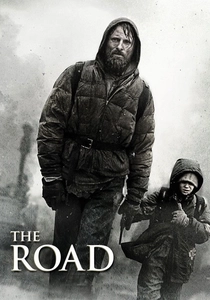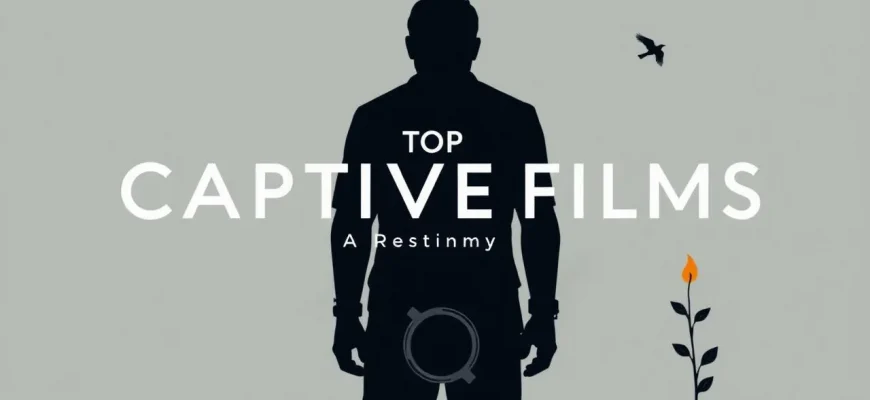Embark on a cinematic journey through the harrowing experiences of captivity with our curated list of 10 films. These movies not only explore the physical and psychological toll of being held against one's will but also showcase the resilience of the human spirit. From heart-wrenching dramas to suspenseful thrillers, each film offers a unique perspective on the theme of captivity, providing viewers with both entertainment and a deeper understanding of human endurance and hope.

The Silence of the Lambs (1991)
Description: While not solely about captivity, this film features the chilling relationship between FBI agent Clarice Starling and the imprisoned cannibalistic psychiatrist, Hannibal Lecter. Their interactions delve into psychological captivity and manipulation, making it a unique entry in our list.
Fact: It is one of only three films to win the "Big Five" Academy Awards: Best Picture, Best Director, Best Actor, Best Actress, and Best Adapted Screenplay.
 Watch Now
Watch Now 
The Shawshank Redemption (1994)
Description: This timeless classic follows the story of Andy Dufresne, a young man sentenced to life in Shawshank Prison for a crime he didn't commit. The film delves into themes of hope, friendship, and the will to survive in the face of overwhelming odds, making it a poignant addition to our list.
Fact: The film was not a box office success upon release but has since become one of the most beloved films of all time, often topping IMDb's Top 250 list.
 Watch Now
Watch Now 
The Lives of Others (2006)
Description: Set in East Germany, this film examines the surveillance and control over citizens, a form of psychological captivity, through the story of a Stasi officer who becomes emotionally involved with the lives he monitors.
Fact: It won the Academy Award for Best Foreign Language Film, reflecting its universal appeal and profound storytelling.
 Watch Now
Watch Now 
The Road (2009)
Description: While not about traditional captivity, this film portrays a father and son's journey through a post-apocalyptic world where they are essentially captives of their environment, facing constant threats and scarcity.
Fact: Viggo Mortensen lost significant weight for his role to portray the physical toll of their journey.
 Watch Now
Watch Now 
The Girl with the Dragon Tattoo (2011)
Description: While the film involves various forms of captivity, it particularly focuses on the psychological and physical captivity of the characters, especially Lisbeth Salander, whose past and present are marked by confinement.
Fact: The film's title sequence, designed by Tim Gebbels, won an award at the 2012 Motion Picture Sound Editors Golden Reel Awards.
 Watch Now
Watch Now 
12 Years a Slave (2013)
Description: Based on the true story of Solomon Northup, a free black man kidnapped and sold into slavery, this film captures the brutal reality of captivity in the antebellum South, showcasing the resilience and determination to regain freedom.
Fact: The film won the Academy Award for Best Picture, and Chiwetel Ejiofor's performance as Solomon Northup was critically acclaimed.
 Watch Now
Watch Now 
The Hunt (2012)
Description: Although not about physical captivity, this Danish film explores the social captivity of a man falsely accused of child molestation, showing how societal judgment can imprison someone psychologically.
Fact: The film was Denmark's submission for the Best Foreign Language Film at the 86th Academy Awards.
 Watch Now
Watch Now 
Room (2015)
Description: "Room" tells the story of Joy and her son Jack, who have been held captive in a small room for seven years. The film explores their escape and the challenges of adjusting to the outside world, offering a raw look at the effects of captivity on both mother and child.
Fact: Brie Larson won an Academy Award for Best Actress for her role as Joy, highlighting the film's emotional depth and her powerful performance.
 Watch Now
Watch Now 
The Captive (2014)
Description: A thriller about a father whose daughter was abducted years ago, exploring the ongoing captivity and the psychological impact on both the family and the captor.
Fact: The film was shot in Canada, with much of the filming taking place in the city of Toronto.
 Watch Now
Watch Now 
The Experiment (2001)
Description: This German film, remade in English in 2010, explores the psychological effects of captivity and power dynamics when a group of men participate in a simulated prison experiment that spirals out of control.
Fact: The film is inspired by the real-life Stanford prison experiment, highlighting the ethical issues of such psychological studies.
 30 Days Free
30 Days Free 








